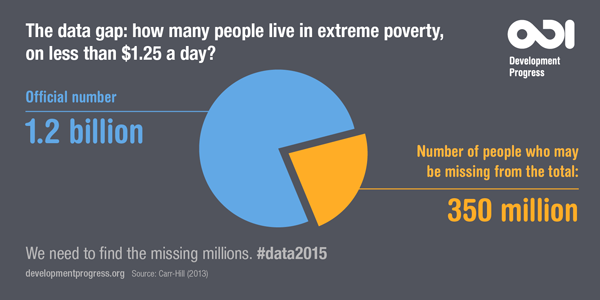World Milk Day 2024 Report – Celebrating Dairy’s Vital Role in Nutrition and Sustainability
This year, on June 1, we celebrated the vital role that dairy plays in delivering…

We are aware that about 805 million people of the 7.3 billion people in the world, or one in nine, is suffering from chronic undernourishment. We are also aware that by 2050 the world’s population will reach 9.1 billion and that in order to feed them, global food production must increase by 70 percent. This worrying issue has raised the question of how will we sustainably achieve that. However, there could be a much more appalling question: What if this number is wrong? And, what if in reality many more people live in hunger and poverty?
A recent report published by the Development Progress project, has brought into light that 350 million people worldwide are not covered by household surveys. Taking this into account, there could be as many as a quarter more people living on less than $1.25 a day than current estimates suggest, because they have been missed out of surveys.
We are living in a data revolution era in which thanks to the advances in IT and telecommunications, we are able to achieve good quality, relevant, accessible and timely data that is allowing us to set our global goals to tackle poverty and hunger. Sadly many countries do not have adequate systems, whether technological or structural, that are reaching their whole population. And just as we could have an inaccurate starting points for the global poverty and hunger targets, countries could be setting erroneous national targets as part of their planning processes.
The data revolution: finding the missing millions report suggests that the solutions are threefold: increasing investments in the capacity of national statistical offices (NSOs), thereby potentially improving the scope and frequency of household surveys; using alternative sources of data to fill gaps and building strong administrative systems; and making better use of the data we already have.